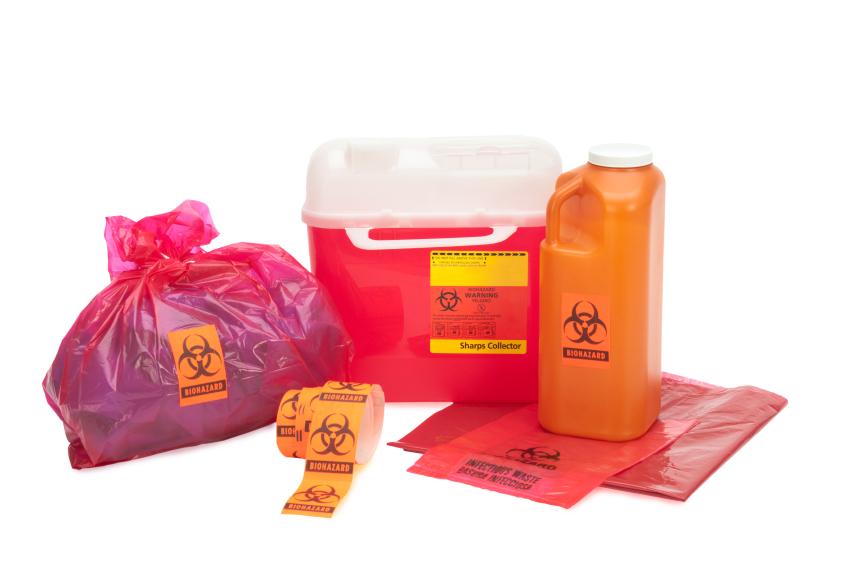Medical Waste Removal Excellence: Your Relied On Partner in Safe Biohazard Disposal
Medical Waste Removal Excellence: Your Relied On Partner in Safe Biohazard Disposal
Blog Article
The Relevance of Appropriate Waste Disposal Practices
The management of waste is a critical aspect of ecological stewardship that commonly goes unnoticed in our daily lives. Correct waste disposal techniques are not just a matter of ease however are important for guarding our ecological communities and public health and wellness. From the repercussions of inappropriate waste disposal on our setting to the long-lasting effects for future generations, the relevance of adopting lasting waste administration practices can not be overstated. By discovering the ecological effect of untrustworthy waste disposal, the advantages of reusing efforts, and the relevance of neighborhood engagement in waste decrease efforts, a deeper understanding of why correct waste disposal methods are crucial emerges.
Ecological Effect of Improper Disposal
Improper disposal of waste poses a substantial threat to the environment because of its damaging results on ecosystems and human health. When waste is not correctly managed, it can result in pollution of the air, water, and dirt, creating damage to numerous plant and pet types. click here. Chemicals and toxic substances from poorly disposed waste can permeate right into the ground, infecting groundwater sources and affecting the health of both wildlife and humans
Additionally, the accumulation of waste in garbage dumps generates greenhouse gases like methane, adding to environment adjustment and international warming. Inappropriate disposal techniques also result in littering, which not only deteriorates the aesthetic value of the environment but can also damage wild animals with consumption or complexity.
To alleviate these environmental impacts, it is vital for communities and people to take on correct garbage disposal techniques such as recycling, composting, and accountable dangerous waste disposal. By taking these steps, we can help shield ecosystems, preserve natural deposits, and secure human health and wellness for current and future generations.
Advantages of Recycling Programs
Regularly getting involved in reusing programs offers numerous benefits for both the atmosphere and society as a whole. Among the crucial benefits of recycling is the conservation of natural deposits. By recycling products such as paper, glass, plastic, and metal, much less basic materials need to be drawn out from the earth, resulting in decreased deforestation, mining, and exploration activities. This conservation of resources not just assists in maintaining eco-friendly balance yet also adds to sustainable development.
Additionally, reusing plays a vital role in minimizing power consumption and greenhouse gas exhausts. The production of products from recycled products typically needs much less power contrasted to manufacturing from virgin resources - medical waste removal near me. Therefore, the carbon footprint related to the production process is dramatically decreased, aiding in the battle versus climate change
Furthermore, reusing programs develop job opportunities in the reusing sector, advertising economic growth and social welfare. By motivating the recycling and reuse of products, these programs sustain a round economic situation that decreases waste generation and maximizes source performance, ultimately causing a cleaner, greener future for generations to find.
Hazardous Waste Administration Standards
Carrying out reliable contaminated materials management standards is crucial for reducing environmental and health risks connected with the improper disposal of dangerous materials - click here. Proper handling, treatment, and disposal of harmful waste are essential to avoid contamination of dirt, water resources, and air
One key guideline appertains labeling of contaminated materials containers to ensure safe handling and transportation. Additionally, facilities should adhere to stringent storage requirements to avoid leaks, spills, or accidents that could endanger human health and the atmosphere. Regular training programs for workers on contaminated materials administration techniques are likewise essential to guarantee click here conformity with laws and advertise a culture of safety and security.
Furthermore, contaminated materials must be segregated based upon its residential or commercial properties to avoid chain reactions that can cause harmful situations. Carrying out a detailed waste radar can assist monitor the activity of harmful materials from generation to disposal, ensuring openness and responsibility. By following these standards diligently, organizations and markets can contribute to a more secure and cleaner atmosphere for future and existing generations.
Neighborhood Involvement in Waste Decrease
To effectively resolve the environmental and health and wellness threats connected with contaminated materials administration, involving the area in waste reduction efforts is extremely important. Area involvement plays an essential duty in promoting sustainable waste monitoring methods and cultivating a culture of ecological duty. By educating citizens about appropriate waste partition, recycling, and composting methods, areas can considerably lower the amount of waste sent to land fills, therefore decreasing environmental contamination and preserving all-natural resources.
Neighborhood engagement in waste reduction programs additionally assists in raising understanding concerning the significance of waste minimization and motivates people to embrace green practices in their day-to-days live - medical waste removal near me. Collective initiatives in between neighborhood authorities, waste monitoring firms, and area participants can lead to the application of efficient waste reduction methods tailored to the certain demands of each neighborhood or town
Furthermore, community engagement fosters a feeling of possession and liability amongst homeowners, equipping them to take proactive steps in the direction of minimizing waste generation and promoting a cleaner, much healthier environment for future and current generations. By working with each other towards usual waste decrease goals, communities can make a considerable impact on reducing the negative impacts of improper garbage disposal techniques.

Future of Sustainable Waste Practices
Conventional waste disposal methods, such as landfilling and incineration, are no longer lasting in the lengthy term due to their significant environmental influences. Moving ahead, the future of sustainable waste practices lies in accepting a round economic situation approach, where sources are recycled, reused, or repurposed to reduce waste generation.
Technological technologies play a key function in forming the future of lasting waste techniques. Advanced waste sorting and recycling modern technologies can help enhance the performance of waste management procedures, enabling the recovery of beneficial sources from waste streams. Additionally, the adoption of eco-friendly products and composting approaches can help decrease the quantity of natural waste winding up in land fills, thereby alleviating greenhouse gas discharges.
Furthermore, promoting customer recognition and education and learning on proper waste partition and disposal techniques is essential for driving behavior change in the direction of sustainability. By cultivating a society of waste reduction, reuse, and recycling, communities can jointly add to a cleaner and much healthier setting for future generations.

Final Thought
To conclude, proper garbage disposal practices are critical for lessening ecological impact and advertising sustainability. By applying recycling programs, handling hazardous waste properly, and encouraging area involvement in waste reduction initiatives, we can function towards a cleaner and healthier setting. It is necessary for governments, people, and organizations to prioritize sustainable waste practices for the future wellness of our planet.

From the repercussions of incorrect waste disposal on our environment to the long-lasting ramifications for future generations, the value of embracing lasting waste management techniques can not be overstated. By checking out the environmental impact of reckless waste disposal, the advantages of reusing efforts, and the significance of neighborhood interaction in waste reduction initiatives, a much deeper understanding of why appropriate waste disposal methods are vital arises.
By educating residents about correct waste partition, recycling, and composting methods, communities can considerably reduce the amount of waste sent out to land fills, consequently decreasing ecological air pollution and preserving all-natural resources. (click here)
Moving ahead, the future of lasting waste practices lies in accepting a circular economic situation method, where sources are recycled, reused, or repurposed to decrease waste generation.
Advanced waste sorting and reusing technologies can aid improve the efficiency of waste management processes, allowing for the healing of useful sources from waste streams.
Report this page